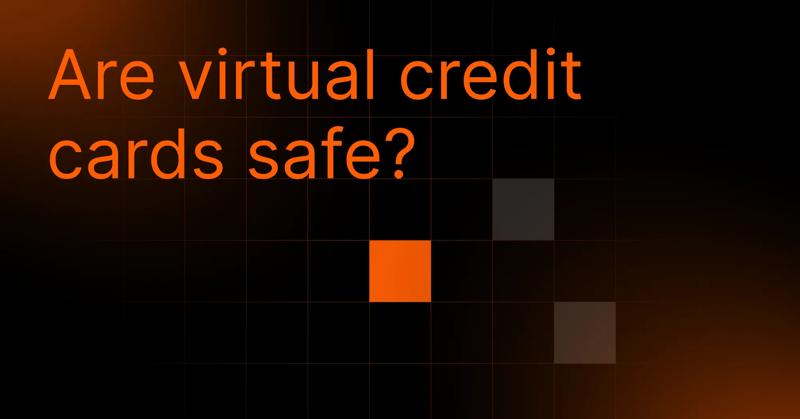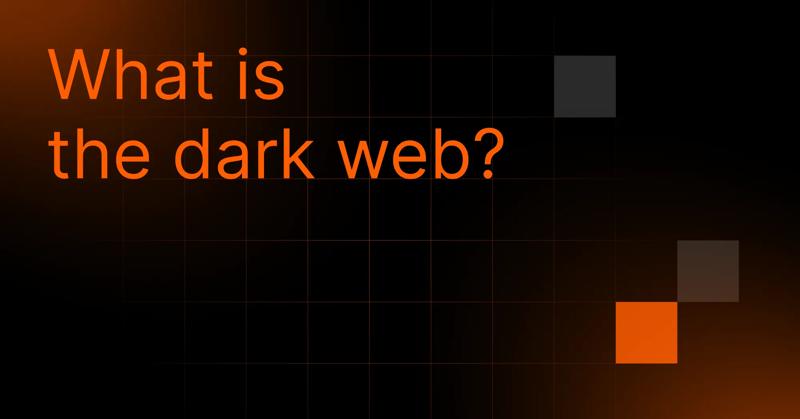Can you change your Social Security number? Everything you need to know
Your Social Security number (SSN) is one of the most important identifiers you have in the United States. You need it to file taxes, take loans, obtain employment, and apply for government benefits. But what happens if your number becomes compromised? Can you change your Social Security number? Let’s break down what’s actually possible, when it’s allowed, and what to expect if you ever have to go through the process.

Can you change your Social Security number?
You can change your Social Security number — but only under very specific circumstances approved by the Social Security Administration (SSA).
The SSA rarely grants a new Social Security number, and you can’t get one online. You’ll need to visit your local Social Security office in person, complete Form SS-5, and provide documentation proving your identity, citizenship, and reason for the change.
The agency considers SSN changes only when serious, ongoing issues can’t be resolved any other way. These include identity theft that continues to harm you, harassment or abuse that puts you at risk, or an administrative or sequential numbering problem within a family. Occasionally, the SSA may also grant a new number due to religious or cultural objections to certain numbers within the SSN.
Common reasons for changing a Social Security number
Most people will never need to change their SSN. However, the SSA recognizes that some situations justify such a change. Here are some instances when you could be granted a new SSN
Identity theft and fraud issues
Identity theft is one of the most frequent reasons for an SSN change. If you’re an identity theft victim and someone is using your SSN to open fraudulent accounts, incur debts, or otherwise impersonate you, it can ruin your credit score and personal finances. The SSA will consider issuing a new SSN if you can prove that your identity has been stolen and that the misuse is ongoing despite attempts to resolve it. Typically, you must first attempt to fix the problems by reporting the fraud (e.g. filing reports at identitytheft.gov) and alerting creditors, but if the identity theft continues to disrupt your life, a new number may be warranted.
Keep in mind, this isn’t a shortcut to escape credit woes — the theft must be documented and causing lasting harm. (Having a low credit score for other reasons than identity theft isn’t a valid reason for a new SSN.)
If you’ve started noticing signs of identity theft — such as unknown accounts or unexplained credit inquiries — it’s worth taking action early. It’s also important to understand what someone can do with your Social Security number so you can assess the potential risks and consequences.
Administrative errors
Sometimes bureaucratic errors or odd circumstances can lead to problems with a Social Security number. For example, more than one person might be inadvertently using the same number, which could happen due to a data entry error or if, say, twins were mistakenly assigned identical SSNs at birth. Another valid reason might be mix-ups caused by sequential numbers issued to family members. If your number is so similar to a relative’s that it repeatedly leads to confusion in records or credit reporting errors, the SSA might consider giving you a new SSN to resolve the issue.
Essentially, any scenario where an SSN conflict or duplication causes ongoing administrative headaches could qualify. That said, you still need to prove that someone else is actively using it and causing harm (albeit unintentionally). In such cases, knowing how to see if someone is using your Social Security number can be very helpful before you take further steps.
Harassment and abuse
Facing a serious threat to your safety is another valid reason for an SSN change. Victims of domestic violence, stalking, or severe harassment may need to establish a new identity to escape their abuser. The SSA acknowledges that in life-endangering situations, assigning a new Social Security number can be part of a survivor’s safety plan. For instance, a survivor of abuse might relocate, change their name, and request a new SSN to prevent the abuser from tracking them.
Still, evidence of harassment or abuse — such as police reports, restraining orders, or letters from counselors — is required to support your case. The SSA does not take these situations lightly — they will issue a new number only when proof shows you are being harassed or abused, or your life is in danger.
Religious or cultural reasons
In very rare cases, religious or cultural objections to certain numbers have led to SSN changes. Some people have deeply held beliefs that make a particular digit combination in their SSN unacceptable to them — for example, it might be viewed as unlucky, offensive, or contrary to their faith.
The SSA will consider such a request only if you provide written documentation confirming the objection from a religious group with which you have an established relationship. In practice, this might apply if your SSN contains a sequence that your religious group or culture considers taboo (for instance, some might object to the sequence “666” on religious grounds).
Who can get a new Social Security number?
Only a small subset of people qualify for a new Social Security number. Generally, you must fit one of the special circumstances described above. The Social Security Administration has strict requirements, and you’ll need to prove that keeping your current SSN will cause you continued harm or hardship.
On the other hand, many people do not qualify for a new SSN. The SSA will not issue a new number to help you avoid consequences of past actions — for example, you cannot change your SSN to dodge creditors, erase debt or bankruptcy, or evade the law. Having a poor credit history or wishing for a “fresh start” are not valid reasons either.
And if you simply lost your Social Security card, that alone isn’t grounds for getting a new number — you can easily request a replacement card with the same number easily.
How to change your Social Security number
If you’ve determined that you qualify for a new SSN, the process involves several important steps. Here’s how to go about it:
- Contact the SSA and make an appointment. Call or visit your local Social Security office to schedule an in-person appointment. The SSA requires a face-to-face meeting for an SSN change request — you cannot apply for a new SSN online.
- Gather required documents. Before your appointment, collect original documents proving your identity, age, citizenship (or immigration status), and current SSN. U.S. citizens should bring documents like a birth certificate or U.S. passport (for citizenship and age), plus a government-issued photo ID such as a driver’s license or passport (for identity). Non-citizens need to show Department of Homeland Security documents, like an Employment Authorization Document (EAD) or other work-authorization paperwork, to prove legal immigration status. If you’ve had a name change (for example, after marriage), bring the legal name change document as well.
- Submit an application (Form SS-5). The application to change your SSN is essentially the same Form SS-5 used for new or replacement Social Security cards. At your appointment, you will fill out this form with the help of the SSA representative. In the application, you’ll need to give your personal details (name, date of birth, etc.) and answer questions about whether you or someone on your behalf has ever filed for an SSN before. Additionally, you’ll have to write a statement explaining why you need a new number — the SSA staff will assist you in drafting this statement to ensure it covers the necessary points.
- Provide the evidence and answer questions. Hand in all your documentation to the SSA employee during your interview. They will verify your identification documents and review the evidence backing up your reason for the SSN change. For instance, if you want to change your SSN due to identity theft, you might present a police report and a letter from the IRS or credit bureaus showing fraudulent activity. Thus, having a clear understanding of how to report identity theft will help you gather the necessary evidence.
- Wait for approval and your new card. After the appointment, the SSA will process your request. If it gets approved, you will be assigned a new Social Security number, and they will mail you a new Social Security card with your new number (under your current name) to the address you provided. Be patient — obtaining a new SSN often takes several weeks or even a couple of months, depending on how quickly you can provide all required documents and how complex your case is.
Effects of changing your Social Security number
Before you decide to pursue a new SSN, it’s crucial to understand the impact and repercussions. Changing your Social Security number is not a magic reset button for your identity or credit. Here are some key issues to consider:
- Your credit and financial history won’t disappear. A new Social Security number does not erase your past financial records or debts. You’ll still be responsible for any bills, loans, or credit card debts incurred under your old number — those obligations won’t vanish.
Additionally, when you get a new SSN, your existing credit history doesn’t automatically transfer over cleanly. In fact, it’s common to experience errors or gaps in your credit report after an SSN change. For example, some of your credit accounts might not link to the new number right away, making your credit history look shorter or incomplete. This could result in a temporarily lower credit score or difficulty in obtaining new credit until the records are corrected. You may need to work with the credit bureaus to merge or update your files, disputing inaccuracies and making sure your old and new records are properly connected. - You will have to notify government agencies and update your records. When you change your SSN, the Social Security Administration will cross-reference your new number with the old one in their systems to maintain continuity of your earnings and Social Security benefits record. However, other government agencies and institutions might not automatically get the memo. Your old SSN will still exist in records at places like the Internal Revenue Service (IRS), state motor vehicle departments, and other databases. Government agencies typically keep your original SSN on file and may later link it to your new one when they’re notified. It’s often your responsibility to inform relevant parties of the change.
- You may face bureaucratic hassles. Think of all the places your SSN is used as an identifier — employers, schools, banks, utilities, insurance companies, medical records, etc. After an SSN change, you’ll need to contact each of these institutions to update your records with the new number. This can be a time-consuming and sometimes confusing process because many organizations don’t encounter SSN changes often.
- Your old SSN won’t be completely gone. Many people assume that once they have a new SSN, the old one is “dead.” In reality, your old SSN remains linked to you behind the scenes. The SSA and other agencies maintain cross-references to ensure you get credit for your contributions, benefits, and records accumulated under the old number. The SSA will not reassign your former SSN to anyone else for reuse. So when you start using a new number, keep in mind that the old one still exists in historical records (e.g. past tax returns, school records, etc.) and can still be used to look up those earlier records. This is important for things like your earnings history for Social Security benefits — rest assured, you won’t lose your work credits or entitlements because the SSA will merge your files.
However, it also means that if an identity thief had your old SSN, they might still try to use it, thinking it’s valid. You’ll need to remain vigilant. A new number can help you going forward, but it doesn’t guarantee the old number won’t be misused or referenced. In the context of identity theft, changing your SSN is not a permanent solution if the thieves still have your personal info — you must continue monitoring and protecting your identity even after the change.
How to protect your Social Security number
Whether you go through an SSN change or not, one thing remains constant: you should protect your Social Security number to the fullest extent. Your SSN is a master key to a trove of personal data, so guarding it can prevent identity theft and many other problems. Here are some practical steps to keep your SSN (and identity) safe:
- Safeguard your Social Security card. Treat your Social Security card like a treasure. Don’t carry it in your wallet or purse on a daily basis. Instead, keep it in a secure place (for example, a home safe or safety deposit box) along with other important documents. By not carrying it around, you reduce the risk of losing it or having it stolen. If you need to provide your SSN for a one-time verification, remember to retrieve any copies — for example, if you show your card to an HR department, ensure they store it securely or hand it back.
- Limit sharing your Social Security number. Think twice whenever someone asks for your SSN. Many organizations might request it out of habit, even when they don’t really require it. Ask if you can give an alternate form of identification.
- Get an Identity Protection PIN (IP PIN) and renew it each January. This IRS-issued six-digit code adds extra security to your SSN and prevents fraudsters from filing a tax return using it.
- Monitor your financial and personal records. Protect your personal information and stay alert to any signs indicating that someone else might be using your SSN. For example, receiving unexpected bills, collection calls, or notices about accounts you didn’t open is a major red flag. Regularly check your credit reports from the major bureaus (Experian, Equifax, TransUnion) for unfamiliar accounts or inquiries. Review your Social Security earnings statement (you can view it by creating a “my Social Security” account on SSA.gov) to ensure the reported wages match your actual income. If you’re concerned about possible misuse, here’s how you can check if someone is using your Social Security number.
- Take action if you suspect identity theft. If your SSN is compromised or you suspect misuse, act quickly. Contact the fraud departments of companies where your SSN was used, file a report at identitytheft.gov and get a recovery plan, and consider placing a fraud alert or freezing your credit. A credit freeze (also known as a security freeze) prevents new credit accounts from being opened in your name until you lift the freeze with a PIN — it’s one of the most effective ways to block thieves from using your SSN to file for loans or credit cards in your name.You can also review detailed steps on what to do if someone has your Social Security number to make sure you’re taking every possible precaution.
- Consider extra identity-protection measures. Because data breaches, credential leaks, and identity misuse are very real risks, it makes sense to opt for additional safeguards around your SSN. For example, the Internal Revenue Service (IRS) offers an Identity Protection PIN (IP PIN) that prevents someone from filing taxes in your name, even if they already know your SSN.
On top of that, you may want to explore a trusted identity-theft protection service like §dark-web monitoring of your SSN, email address, and phone number as well as credit-activity tracking and real-time alerts if suspicious activity is detected. In case you do become a victim of identity theft or cyber extortion, NordProtect provides professional recovery support and has coverage for eligible recovery expenses as well as online-fraud and cyber-extortion protection. While no service can guarantee you’ll never be targeted, combining good personal habits with a comprehensive service gives you far stronger protection than relying on one or the other alone.
Scams are in the air!
Save 71% on identity theft protection with fraud insurance
30-day money-back guarantee
View promotion details.
FAQ
How much does it cost to change your Social Security number?
How long does it take to get a new Social Security number?
Will my old Social Security number still exist in records?
Is changing your Social Security number a permanent solution to identity theft?
Can you get a new Social Security number if your identity is stolen?
Lukas is a digital security and privacy enthusiast with a passion for playing around with language. As an in-house writer at Nord Security, Lukas focuses on making the complex subject of cybersecurity simple and easy to understand.



